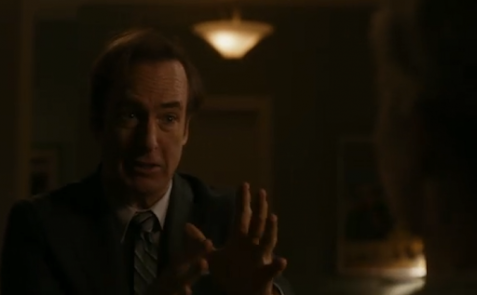That’s How We’ve Always Done It: A Defense of Stubborn Refusal
And so Wes Anderson month draws to a close, as Moonrise Kingdom lingers hesitantly upon the horizon for another couple of days, and we conclude our month-long reflection on that which has come before.
This, however, is not meant to be a particularly thought provoking piece. It’s not what you will remember — if you remember anything at all — and it’s not going to make any grand and conclusive statement. It’s just a final thought before we move forward, before Wes Anderson officially has another release under his belt, and before Moonrise Kingdom takes its rightful place beside his other films, so that we can wait expectantly again for rumors of the next.
It’s a piece, or, perhaps, a tribute, dedicated to the strong relationship between one man and his voice. Because that, without question, is Anderson’s greatest strength, and it’s what his biggest fans see when they react so strongly to his work. It’s also what his most vehement detractors see, though they might not realize that.
Anderson’s regularity in terms of his core cast, reappropriated pop songs, emotional dissonance, familial dissatisfaction, costumes, meticulous set design, original score composers and even typefaces all lead certain members of his potential audience — and certain reviewers — to deride him as somebody who is either incapable of evolution or totally opposed to it. Personally, I see all of that as evidence that Anderson found his voice quickly and firmly, and therefore sees no benefit to hollow deviation.
I wouldn’t see a benefit either. Evolution, in an artistic sense, should never occur for its own sake. An artist must always be evolving toward something, not in a state of constant flux. For an artist, comfort is paramount. That’s when artists are free to realize their visions. The less an artist has to worry about the relatively minor aspects of their production, the more they can focus on crafting a compelling core experience.
Anderson has spent his (admittedly young) career surrounding himself — like Steve Zissou — with a core group that he knows he can trust to realize smaller aspects of his vision. With those team members in place, he can focus on what the production is. It frees him to make decisions he might not otherwise have the time to get to.
The films of Wes Anderson don’t represent a refusal to evolve…they represent a confidence of vision. Anderson knows his own hallmarks; he’s not deaf to what critics say and he’s certainly aware of the amount of money each of his films takes in. (Or, of course, fails to take in.)
But he’s an artist, not a businessman. He knows that a commitment to his strengths are what will benefit him — and his audiences, even if it takes them a while to understand that — in the long run. His place in film history won’t be reserved for a man who shapes himself differently with every film in a doomed attempt to satisfy a fickle audience. No, his legacy will be a sturdy one, rooted in a single spot…because it just so happened that he found his calling almost immediately.
Many artists search their entire lives for a voice. Those artists have a need to evolve. Along the way they attempt different things, shed what doesn’t work, and glide — hopefully — toward a strong foundation of what does. From that framework, their experiments benefit from confidence, from understanding, and from the sheer satisfaction of having found it.
Wes Anderson was fortunate enough that he didn’t have to look very far. To put it another — equally accurate — way, we are fortunate that he didn’t have to look very far.
He has a lifetime of creativity ahead of him, and the luxury of already knowing how to say whatever it is he’ll need to say next.
I don’t need Anderson to pen a straight romantic comedy, or a detective story, or a historical drama just to prove that he can. Because that wouldn’t be him. That wouldn’t be his heart, those wouldn’t be his words, and that wouldn’t reflect his vision.
I don’t want Anderson to change. I want Anderson to continue to grow. In other words, I want Anderson.
Oftentimes, growth lies inward.
Anderson’s characters know that. Anderson knows it too.
And somehow, I already know that Moonrise Kingdom is going to be derided by many as being “more of the same.”
That’s okay. From a distance, it all looks like the same color.
To those willing to come a little closer, however, Anderson’s painting with a wealth of different shades.
This is an adventure.




Comments
Post a Comment